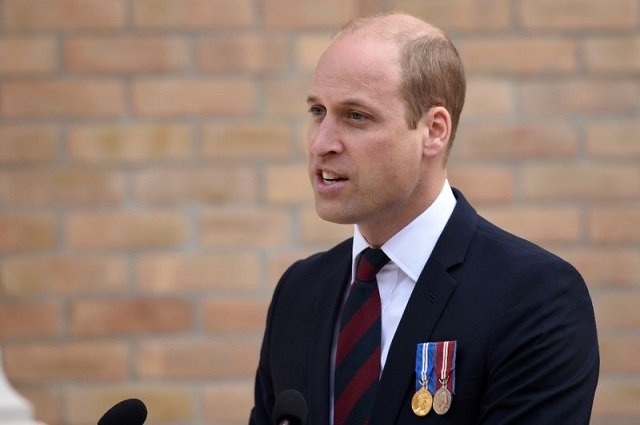
William leaves Britain on Sunday for a tour of Jordan, Israel and the Palestinian territories. Here are a few facts behind the British royals' connections in the region.
British and Jordanian royals have been closely connected in recent decades, with numerous visits on both sides since Amman declared independence in 1946 after 25 years as part of a British protectorate.
The grandfather of Jordan's King Abdullah II, Walter Percy Gardiner, was British. He saw his daughter Antoinette marry the late King Hussein and take the name Princess Muna.
As well as personal ties between the two countries, the royals have a shared history at Britain's Sandhurst Military Academy.
Prince William and his brother Harry both trained at the elite academy, as well as Jordan's Crown Prince Hussein and his father King Abdullah.
In 1999 the Union Jack was flown at half-mast to mark the death of another important Jordanian alumnus King Hussein.
UK can no longer rely on US leadership over Middle East: lawmakers
Some of the royals also have similar fashion tastes. Queen Rania of Jordan's wedding dress was made by British designer Bruce Oldfield, a favourite of William's mother Diana.
As a baby the British prince was baptised at Buckingham Palace with water from the River Jordan, a tradition for British royals based on the Christian belief that Jesus was baptised there.
Third in line to the throne, William married Kate Middleton who as a child lived in Jordan with her family. During the two-year stay she attended a nursery school in Amman and could reportedly sing "Happy Birthday" in Arabic before English.
A family photo shows four-year-old Kate standing with her father and sister among the ancient ruins in Jerash, a site her husband will visit during his tour.
William will be the first senior British royal to make an official visit to Israel and the Palestinian territories. The most recent visit to the latter was made by the Duke of Gloucester, the queen's cousin, on an unofficial trip to an eye clinic.
He and another of the monarch's cousins, the Duke of Kent, have made separate official visits to Israel.
Prince Charles, William's father, attended the funerals of assassinated Israeli premier Yitzhak Rabin in 1995 and former president Shimon Peres in 2016, when he also visited his grandmother's grave in Jerusalem, but they were unofficial visits.
War, conflict fuel arms imports to Middle East, Asia, says study
The British royals had fewer qualms about heading to Jerusalem centuries ago.
The most influential of William's ancestors to set his sights on the city was Richard I more commonly known as Richard the Lionheart.
England's Crusader king has been described by many historians as a warmonger, who slaughtered thousands of hostages in his failed attempt to take Jerusalem in the 12th century before striking a truce with Muslim leader Saladin.
A more recent relative made a far more positive impression and William will take time to go to the tomb of his great-grandmother, Princess Alice, during his tour of Jerusalem.
She has been honoured by Yad Vashem, the Holocaust memorial site the prince will also visit, for saving a Jewish family in Greece during World War II.
Although William's family stays out of politics, his planned stop at a peace centre is a reminder of the British government's historic role in the Israeli-Palestinian conflict.
The British government was behind the Balfour Declaration of 1917, which called for "a national home for the Jewish people" in Palestine. It shocked the Arab world and paved the way for the creation of Israel in 1948.


1732085354-0/insta-(1)1732085354-0-165x106.webp)

1725366721-0/kyle-(1)1725366721-0-165x106.webp)
1732085354-0/insta-(1)1732085354-0-270x192.webp)











COMMENTS
Comments are moderated and generally will be posted if they are on-topic and not abusive.
For more information, please see our Comments FAQ